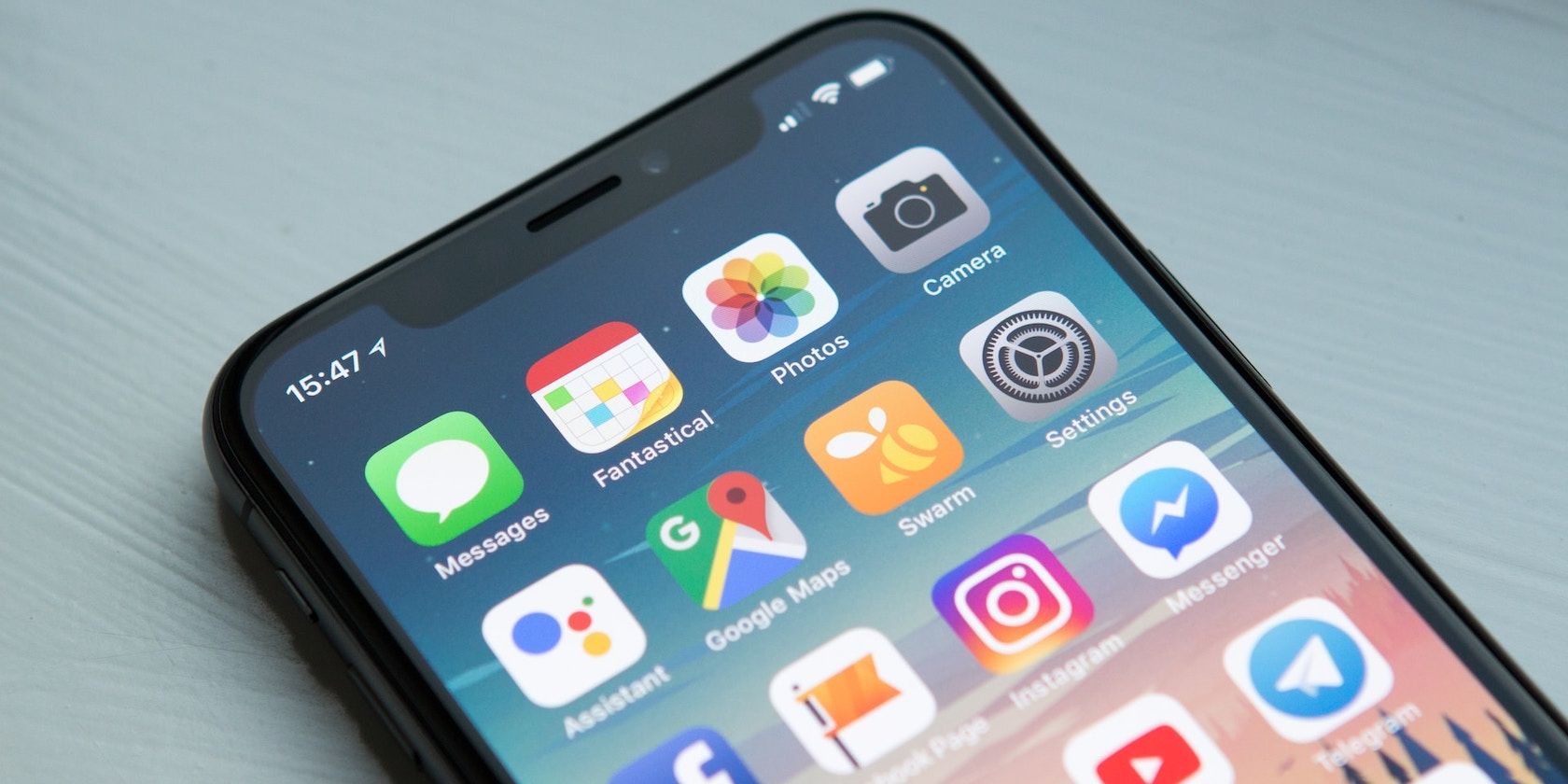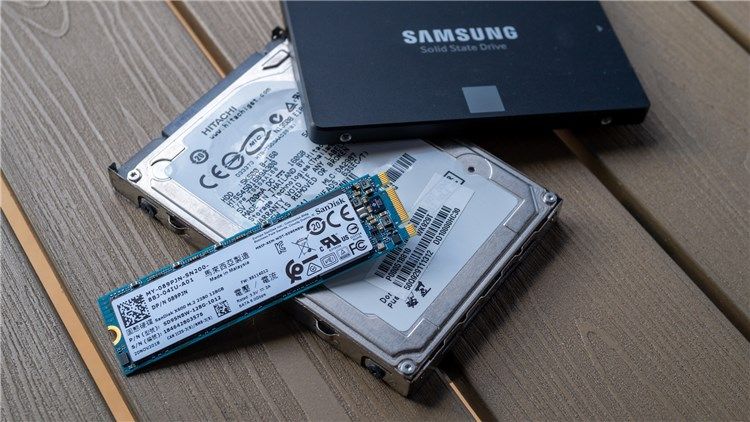
7 Hidden Dangers: How You Might Be Compromising Your Personal Information

7 Hidden Dangers: How You Might Be Compromising Your Personal Information
Quick Links
- Connecting Your Storage Drive to a Public PC
- Relying on an Unreliable Storage Service
- Failing to Back Up Your Data Properly
- Neglecting to Partition Your Drive
- Improperly Relocating Your Data
- Inadequate Security for Your Storage
- Sharing Your Device or Storage Drive with Others
From improper backups and using unreliable cloud storage services to connecting your storage drive to a public PC and neglecting security measures, we often unknowingly risk our data. Let’s explore the various ways you might be jeopardizing your valuable data, with some tips on protecting it.
Connecting Your Storage Drive to a Public PC

Corbin Davenport/How-to Geek
Public computers, often found in libraries and internet cafes, usually lack proper protection with antivirus software or firewalls. Given that anyone can access these devices, browse freely, connect external storage drives, and download untrustworthy software, they are frequently infected with viruses or other malware.
When you connect your personal storage drive to these devices, malicious programs can transfer to your drive, even if you only intend to make a quick transfer. This not only risks the data stored on your storage drive but also endangers data on other devices if you connect the drive elsewhere later.
To avoid these risks, you should avoid (or minimize) the use of external drives with public computers. If you need to download and use files locally, such as for printing documents at a local print shop, use a separate flash drive that you can format later if it becomes infected. Do not connect the main drive containing your valuable data.
Relying on an Unreliable Storage Service
While cloud storage offers greater flexibility in storing and accessing data, using an unreliable cloud storage service can be disastrous. Such services might suffer from poor encryption practices, frequent outages, and data breaches. They may lack a system for data recovery in case of accidental loss. With no disaster recovery plan, you could lose your data permanently.
Therefore, you should choose a trustworthy cloud storage service. Check reviews and the history of data breaches. Ensure the service offers end-to-end encryption and two-factor authentication (2FA). Verify if the provider guarantees data redundancy, meaning they store your data in multiple locations to prevent loss from a single point of failure.
We recommend using trusted cloud storage services like IDrive, Google Drive/One, Icedrive, Sync, and Mega.
Failing to Back Up Your Data Properly
![]()
Lucas Gouveia / How-To Geek | Anton Marchenkov / Shuttterstock
Your computer can be exposed to malware or ransomware attacks, which can corrupt your data or hold it hostage. If you haven’t backed up your data correctly and can’t meet the ransom demands, you risk losing it entirely. Therefore, it’s essential to have a proper backup to avoid losing important files and precious memories in case of such incidents.
I recommend maintaining backups in multiple locations. If you only back up to an external drive, you risk losing your data if the drive gets damaged. Cloud storage services can be targeted by ransomware attacks or experience failures. Having multiple backups keeps your data safe, as the likelihood of losing data from both locations simultaneously is minimal.
Also, it’s crucial to schedule regular backups, manually back up critical files, and periodically test your backups to ensure they are intact and well-protected.
Neglecting to Partition Your Drive
If you don’t partition your storage drive and keep all your data on the same drive as your operating system, you unintentionally put your data at risk. If your operating system becomes corrupted, you may need to format the drive when reinstalling it, causing the loss of all your data stored there.
To avoid this, you should always partition your storage drive and keep the operating system on a separate drive from your other files. This way, if the operating system needs to be reinstalled after formatting, you can safely format that specific partition without affecting the data on the other partitions.
Improperly Relocating Your Data
Not properly relocating data can also lead to data loss. For instance, using the Cut function to relocate data completely removes it from the original location, so if the operation gets interrupted, such as by a power outage, you risk losing the data. Disrupting the drive connection when transferring data to an external drive can also cause losses.
Additionally, copying and pasting files with the same names in different locations may accidentally overwrite existing files, resulting in the loss of the original data.
To avoid these risks, always use the Copy function when relocating data, check for any scheduled power outages before moving large amounts of data, ensure a stable connection when using external storage, and double-check that you don’t have files or folders with the same name in the destination location.
Also, you should thoroughly verify that the data has been fully transferred before deleting it from its original location.
Inadequate Security for Your Storage
Failing to secure your device and data properly can make them vulnerable to loss or theft. Without encryption, timely operating system updates, antivirus and malware protection, and two-factor authentication, your data storage becomes susceptible to cyberattacks. Advanced threats like ransomware can even compromise all your storage.
To enhance the security of your data storage, take these precautions:
- Keep your system updated
- Keep antivirus and firewall protection active
- Encrypt sensitive files
- Use two-factor authentication
- Avoid sharing information over unsecured networks
- Use security features offered by cloud storage services, such as Personal Vault in OneDrive .
The above steps will help minimize the risk of losing your data due to cyberattacks and other online threats.
Sharing Your Device or Storage Drive with Others

Lee Snider Photo Images/Shutterstock.com
Sharing your device or storage drive with other users is a common but often overlooked risk. If the person you share it with doesn’t follow security practices, they could inadvertently infect your device or drive with malware. Without proper protection, they might accidentally delete or alter your files, leading to data loss.
If you trust the wrong person and give them access to your device or drive, they might steal sensitive data and misuse it later. If you share with colleagues who have bad intentions, they could leak confidential information, risking your job. The more people using your storage drive, the harder it is to pinpoint the source of data loss.
To prevent these issues, you should limit sharing of your device and storage drive, keep local data protected, create separate guest accounts for other users, and regularly scan for malware after they use your device. For external drives, ensure they are encrypted. Also, teach others safe web practices to avoid malware infections.
Hopefully, you should now clearly understand how small mistakes can lead to significant data loss. If you haven’t been following the above practices or have been neglectful about taking necessary precautions, it’s time to be more diligent about protecting your valuable data, whether it’s stored locally or online.
Most importantly, ensure you don’t skip backing up your data, as it provides a crucial safety net in case something goes wrong.
Also read:
- [New] Expert Selection Prime Auto Tracking Tech Review
- [New] High-Capacity Card for A7S Professional Use
- [New] HybridMix Pro for Dual OS
- [New] In 2024, How to Get Free Views on YouTube [2 Easy Ways]
- [New] In 2024, Streamlining Video Production Mastering the Use of OBS & Zoom
- [New] Unveiling the Leading YouTube to Mp3 Tools
- [Updated] Expert's Blueprint for AVI to GIF Transformation Using Filmora (Windows/macOS)
- [Updated] GigglesTV Beginner's Guide to Making Videos
- Crafting Instagram Content with Visual Flair for 2024
- Expert Guide to Cutting-Edge Online Streaming via VLC Media Player for 2024
- How Many Seconds Is a 20Mb Video for 2024
- In 2024, Best 10 Mock Location Apps Worth Trying On Vivo Y100 | Dr.fone
- In 2024, How To Track IMEI Number Of Vivo Y100i Power 5G Through Google Earth?
- Increasing Interior Vibrancy Sun's Role Inside for 2024
- Manually Enhancing Xp System’s Performance with Drivers
- Unleash Your Creativity with Mobile Blur Tools for 2024
- What To Do When Oppo A59 5G Has Black Screen of Death? | Dr.fone
- Title: 7 Hidden Dangers: How You Might Be Compromising Your Personal Information
- Author: Frank
- Created at : 2025-02-15 20:50:09
- Updated at : 2025-02-19 17:24:09
- Link: https://some-techniques.techidaily.com/7-hidden-dangers-how-you-might-be-compromising-your-personal-information/
- License: This work is licensed under CC BY-NC-SA 4.0.